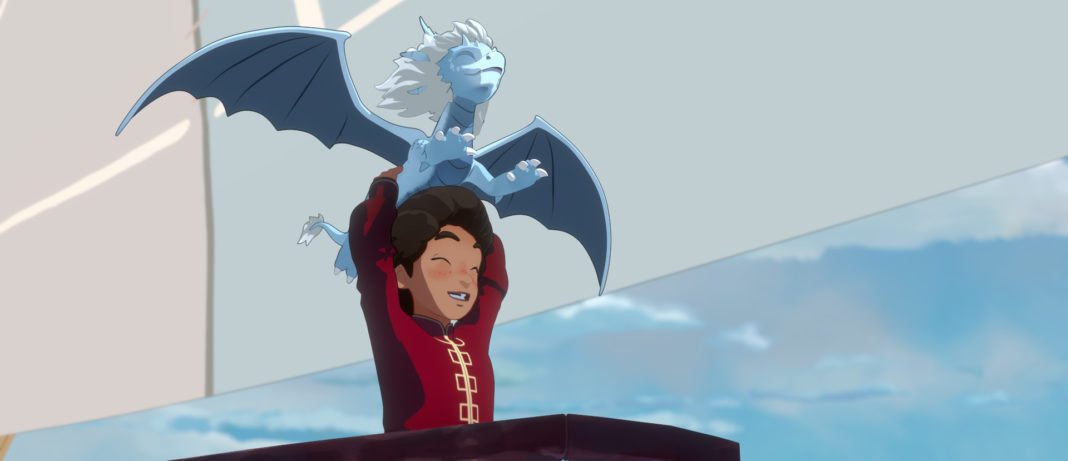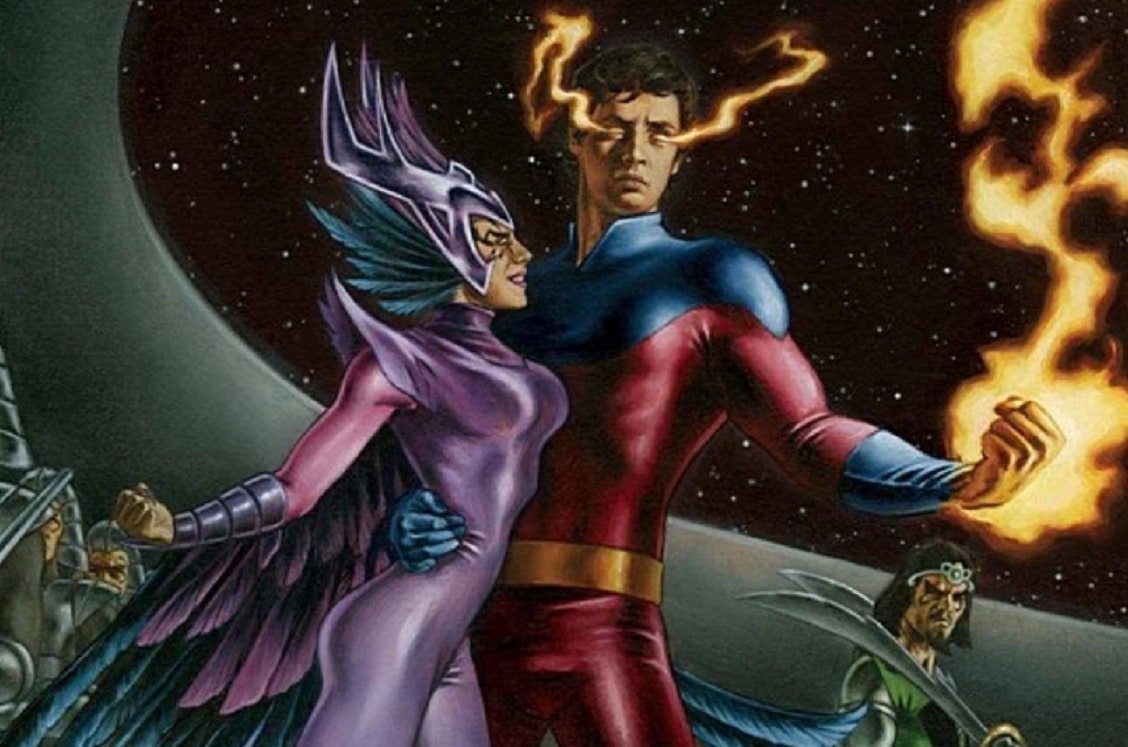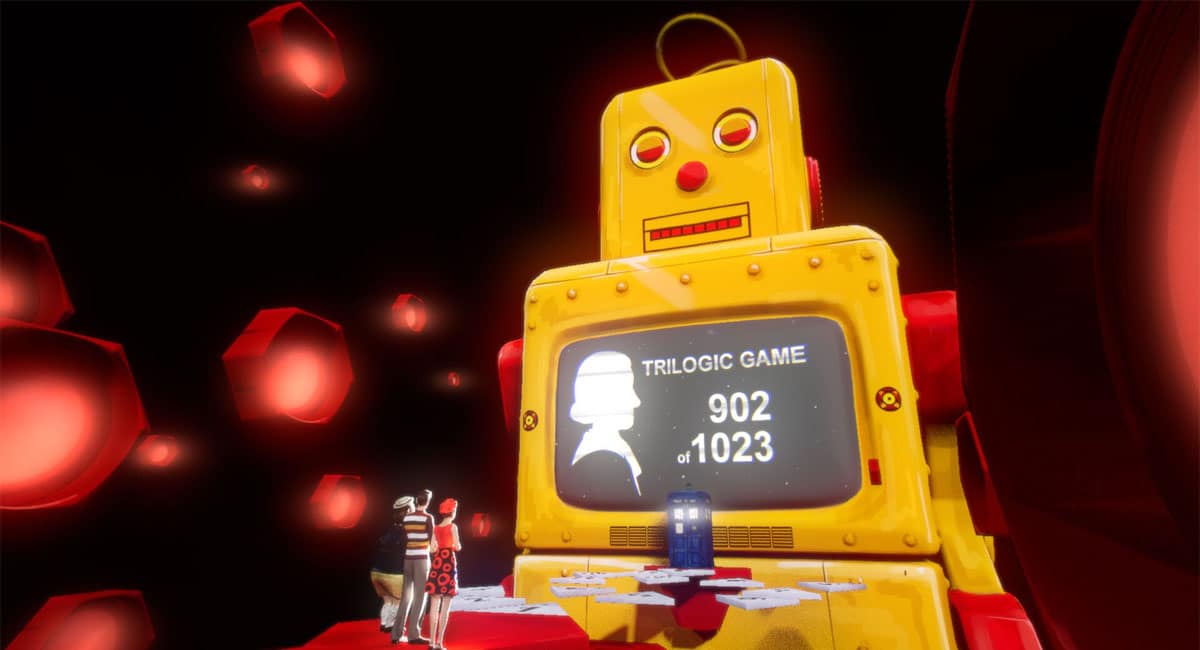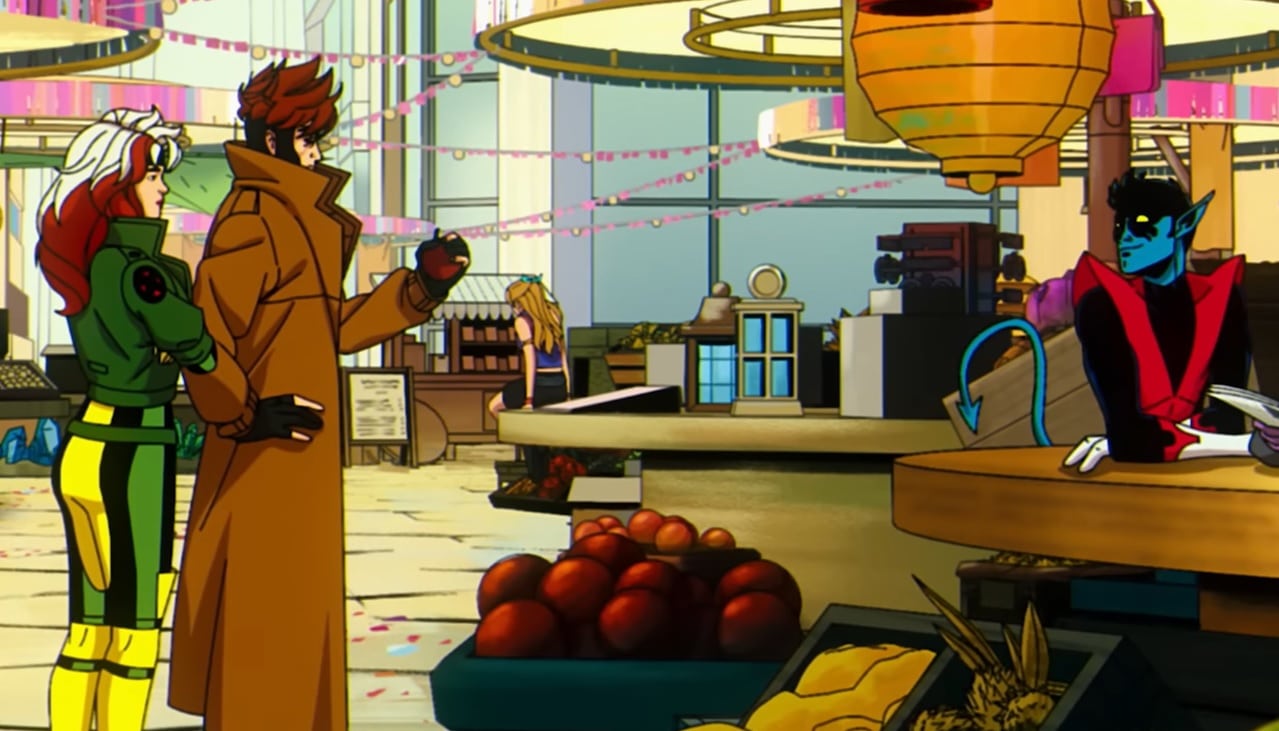By Therese Lacson
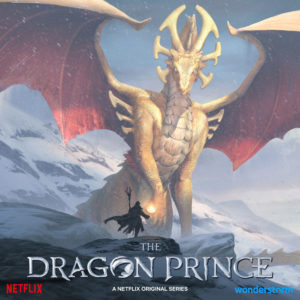
The Netflix series has captivated a large and passionate fan community and has received critical success as well. The series is produced by Ehasz and Richmond’s company Wonderstorm. Ehasz has credits as the head writer for Avatar: The Last Airbender series, and Richmond was the game director of Uncharted 3.
Therese Lacson: How do the two of you collaborate when you’re doing world-building for a show like The Dragon Prince? Every episode I watch lets me discover more of this vast world and I’m curious to know how you guys work together.
Aaron Ehasz: We meet most mornings actually, like, to have coffee. We have reserved creative time. We do some work separately, but we literally just like have an awesome coffee, creative conversation? Several mornings a week. It’s fun.
Justin Richmond: Or we’ll text each other like, yeah, oh, yeah. All the time. I’ll get a random text out of the blue, like at nine o’clock at night, from Aaron like, “What about this crazy thing we never thought about before?”
Ehasz: Like, what if this was the birthday song in Xadia?
Richmond: Exactly. We just kind of bounce ideas. And with our writing team, it’s the same thing. Every once in a while someone will text us or talk to us offline, or like jump in the room and be like, I had this crazy thought! Or one of the game team guys will come in and be like, I know it doesn’t quite work like this, but what if we change this thing slightly so it was better for a gameplay thing? We have a very open relationship between us. And then our team sort of is always willing to jump in and do stuff, too.
Lacson: That’s awesome! So, something that I love about the series is the magic system. You have slowly introduced it, we know a lot about dark magic, but not much about the natural forms of magic yet. Can you elaborate a little bit about how you created the magic system and the ideas that sprung from it?
Richmond: One of the early ideas Aaron came up with was, what if there was a magic system where there’s one way to do magic, which is difficult, takes a lot of study, takes a lot of hard work, and not everybody can do it, but if you can do it, you’re very powerful? But what if there’s a shortcut, and that shortcut ended up using basically magic creatures, right? How ticked off would everybody else be, especially the magical side, if that was the case? And that was one of the first conversations we had about The Dragon Prince, just in general. And then from there it sort of spun off into what it is today with the primal stones and all that kind of stuff. But, that was literally the second or third conversation we had about the show. That idea of what if there was this magic system that inherently has this crazy conflict to it?
Ehasz: I would say this is also a case where Wonderstorm is a company that’s making a TV series and we’re also making video games. One of the great benefits is that we have great minds on our team who think about systems, how our system is going to work in that game, and in that world. Our CTO, Dan Liebgold, was in early story meetings. [His team has] a rigorous standard for these systems needing to have some balance and some sense to them. So, they’ve kept us honest and have pitched their own parts of the system. Having a team of those kinds of minds has allowed us to do stronger world-building than we wouldn’t have been able to do on our own.
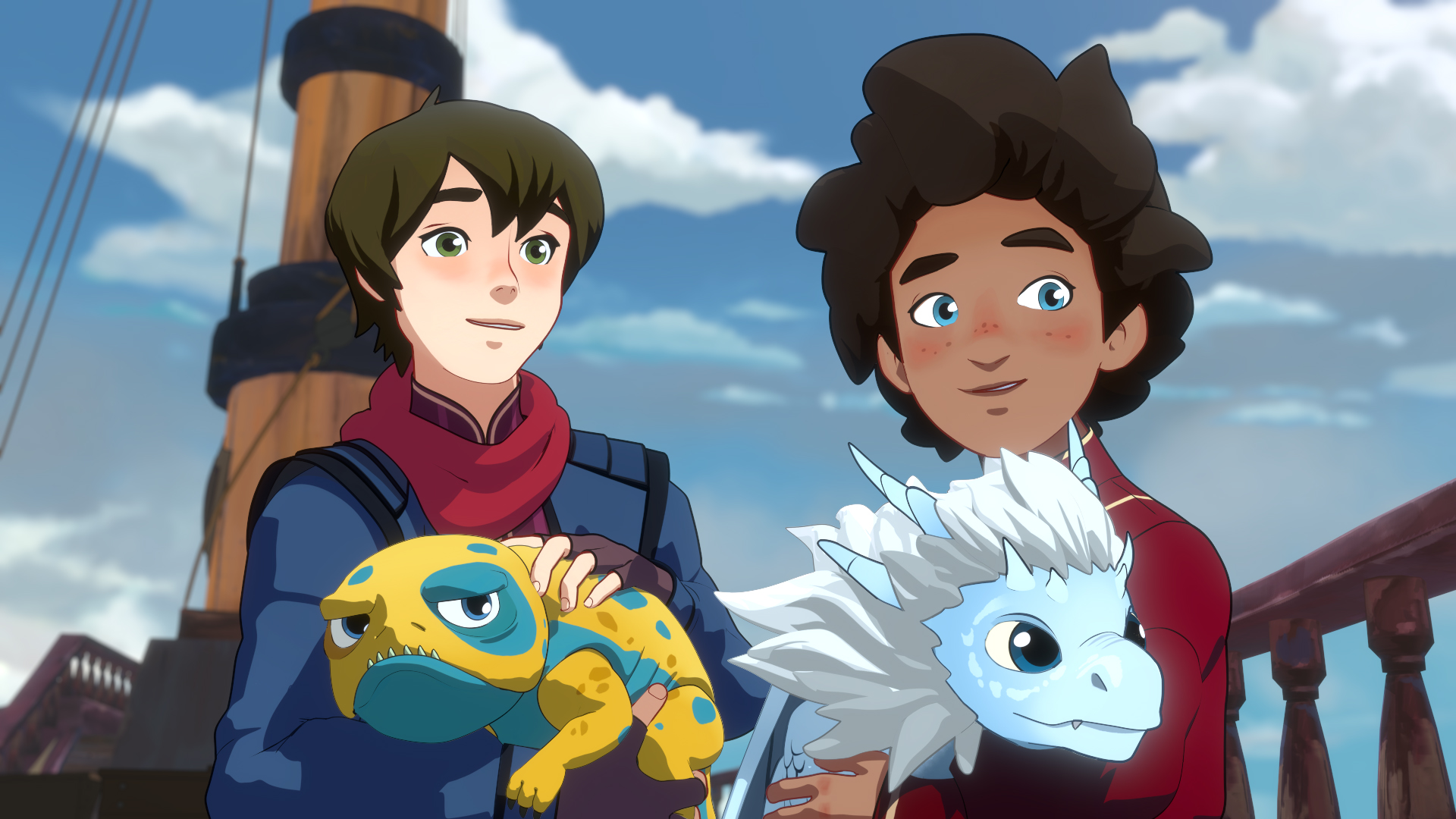
Richmond: Agreed.
Lacson: Justin, how was the transition going from video games like Uncharted 3 to doing long-form narrative? What were your challenges?
Richmond: It’s really different. The difference is you’re always trying to make the story as playable as possible, which means you have to contrive situations to make sure that the player ends up in the right spot and does what you expect them to do, or try and make them want to do those things. What’s freeing about working on an animated show is we just write something, the actors will say it, and then it will happen.
Lacson: There’s no worry about the factor of the player.
Richmond: That’s right. And then the other side of it, when you write on a video game, oftentimes things will change drastically, like up until the last minute. Like really drastically, like oh, a whole level got cut, or this gameplay section just doesn’t work and we need to do something different here. In a TV show, there’s an actual process. There’s storyboards, there’s the animatics. You see it all the way along. And things change as you go, but nowhere near like they do in video games. And that is both freeing and somewhat closed off, right? There are definitely times where I’ve been like, oh it’d be really great if we could go in and redo all this because it’s in real-time, but it’s not, they’re rendering it. There’s a lot more consequences to making decisions. It’s fun, and it’s great. Both of them are really interesting. That’s why we have this company that’s hopefully going to do both really well.
Lacson: And Aaron, it’s not hard to see the influence of Avatar: The Last Airbender also in The Dragon Prince. Even though the two series are targeted at a younger audience, why do you think it’s received such appeal even among adult audiences? Why do you think it speaks to people?
Ehasz: I think there’s a little bit of a misconception about animation in general. Often, or at least in a lot of Western countries, there’s an assumption that you think of animation as cartoons and that it is younger. So, people are usually a little surprised when it’s broader. We think of this as every bit as four-quadrant as Marvel movies or Pixar movies. We write it in a mindful way. We want to tell a sophisticated, deep, dimensional story with characters that an adult fantasy fan will find captivating. At the same time, we recognize that a part of our audience is younger people who are there for magic and cool creatures and seeing these young people grow up. I think we have an awareness of the different layers of our audience that allows us to tell a story in a way that is layered and hopefully works for a lot of different groups.
Richmond: Aaron is an amazing writer. So, yes, all of those things are true. But Aaron has a very unique talent, that a lot of people don’t have, which is the ability to tell wildly complex and interesting thorny moral stories that still appeal to someone who’s six. That is something that most writers can’t do. There’s something in you that you do better than most writers. [You’re able to have] this point of view and be humble enough to ask, what would I have liked when I was eight and 10, or 12? And would I have understood the hell’s going on here? He’s really, really good at that and keeps us all honest. [He keeps us saying,] yeah this is awesome, but does a 10 year-old think it’s cool? And if they do, great, then an adult probably will, too, because we’re going to write it in a sophisticated way. He’s just amazing.
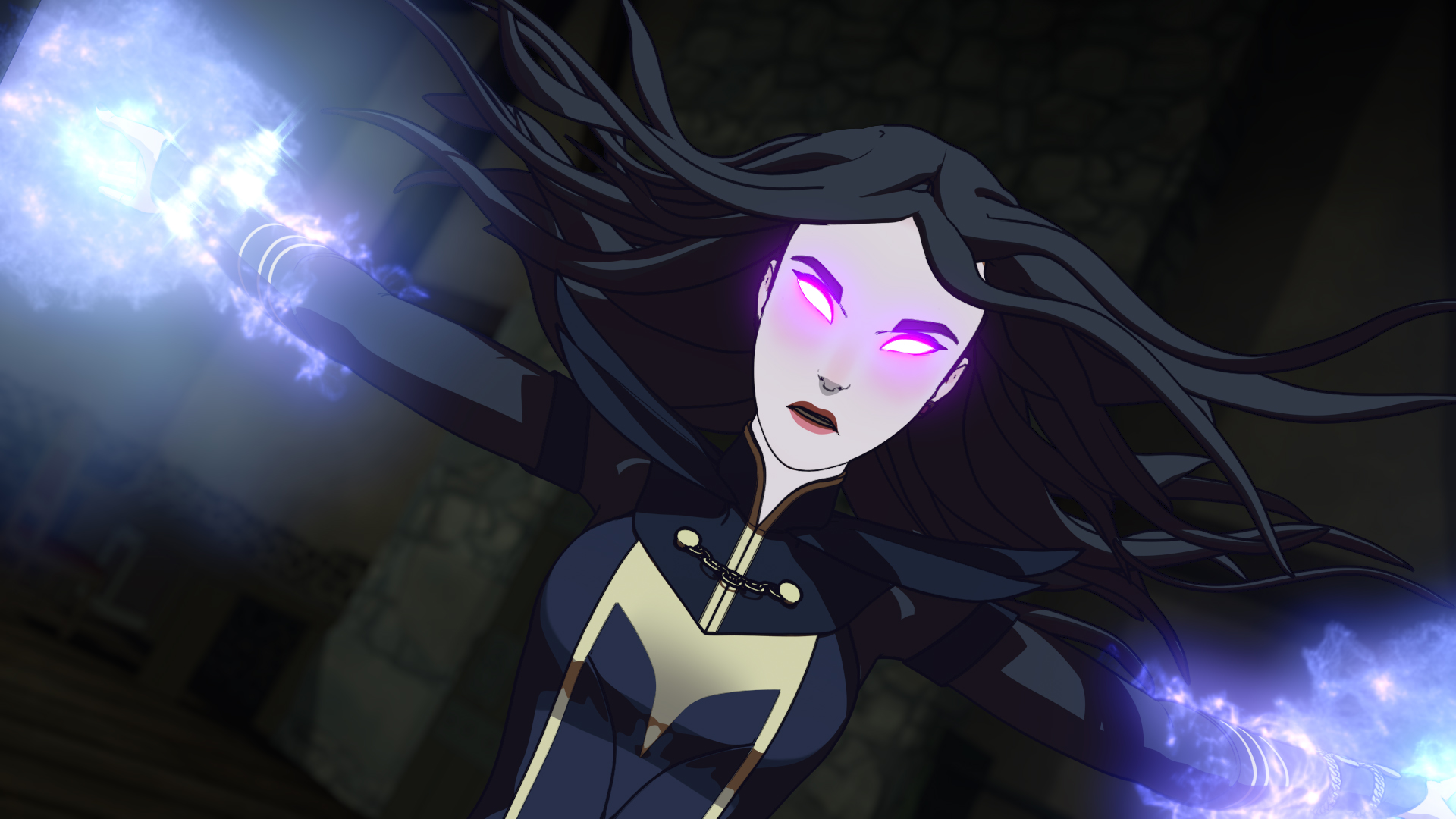
Lacson: To add onto that, I think it would be really easy to make villains of characters like Claudia and Soren. I really liked when I was watching season two that you didn’t take them down that path. How do you guys brainstorm their characters? And how do you balance what actions they take and don’t take when you’re writing?
Richmond: I always try to make sure I remember villains, in general, don’t think of themselves as villains, right? Like, they think of themselves as just a person trying to do with that’s important to them. So, it’s trying to make sure that they feel like they’re a person and they’re acting in their self interest or towards their goal, but they’re not a villain. They’re not trying to be evil, right?
Ehasz: Well, there are some villains.
Richmond: Yes, there are some. But, Soren and Claudia, in particular… Soren would never think, “I’m the bad guy.” He might realize down the road and think to himself, “Am I doing the right thing?” But, also, when we put Racquel [Belmonte] and Jesse [Inocalla] in a room together and have them actually read the lines and play off of each other, then I was like, oh I get it. I get what their relationship is and I always try to keep those actors in particular in mind, like how would they have thought about this? How would they have reacted to this?
And while we weren’t able to get an answer from either Ehasz or Richmond about the predicament of characters like King Harrow and Queen Sarai, whether the former is a bird and whether the latter is living her best life out there with the dragon, Richmond did promise that we would get answers to these questions.
With The Dragon Prince renewed for season three and more questions than ever, we’ll be rewatching the first two seasons on Netflix until we get those answers!


